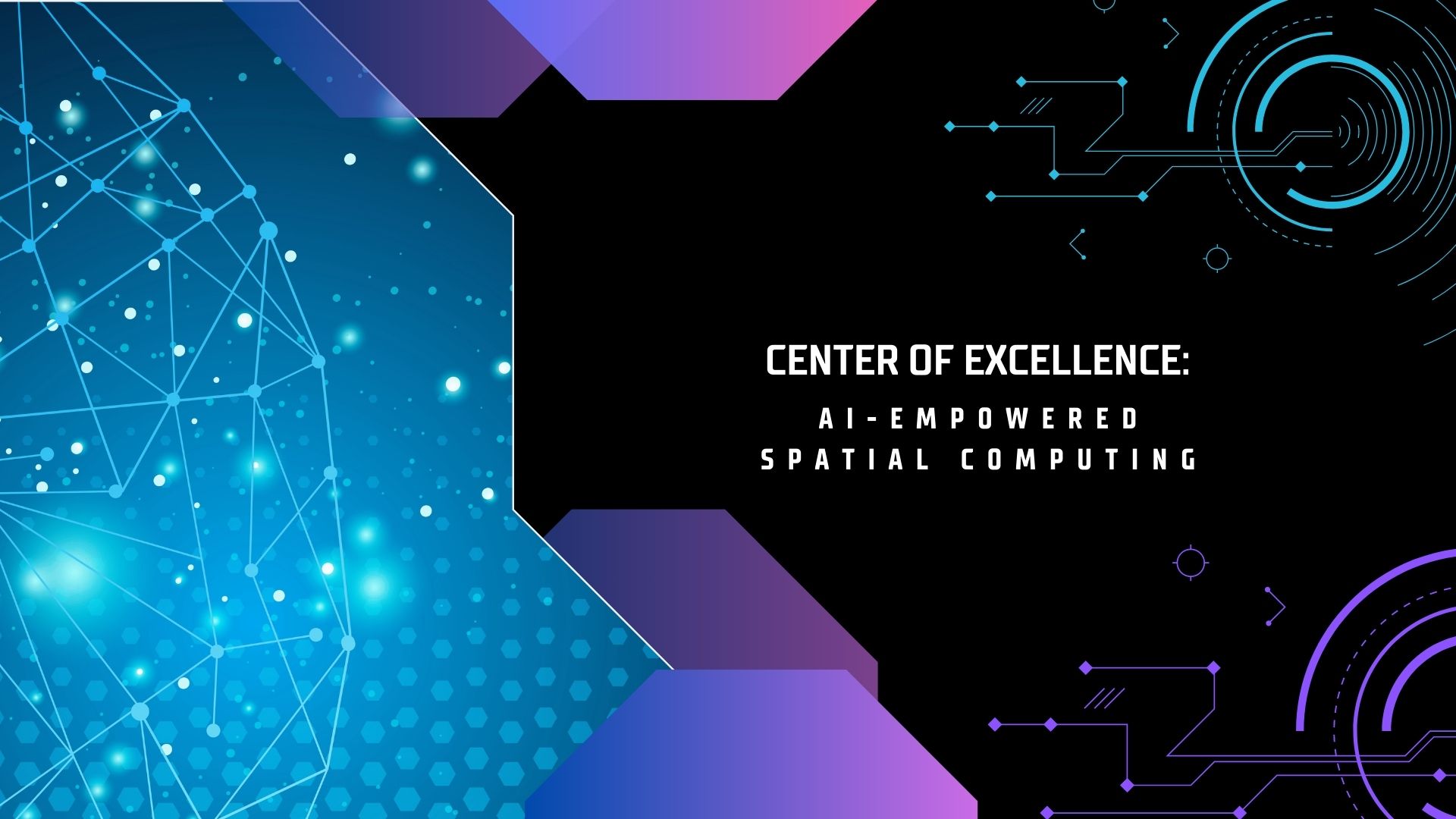Research

- The goal of this center for Excellence in Spatial computing is to develop a collaborative in partnership with the US Department of Education, University of Missouri-Kansas City, University of Missouri-Columbia, and Harris-Stowe State University and regional advanced technology businesses to train students in the most current applications of spatial computing for transition to the workforce.
- Spatial computing enhances emerging artificial intelligence technologies to simulate human immersive environments in real-time, it is the virtual link between machines and humans.
- As a graduate of the Center of Excellence: AI-Empowered Spatial Computing, students will gain unique industry desired spatial computing skills through classroom training, collaborative projects, and product innovation using the most advanced spatial computing technology.
Form and grow a consortium of postsecondary and industry leaders focused on spatial computing
|
|
The proposed objective involves the establishment and expansion of a consortium composed of the postsecondary education and industry with a specific emphasis on spatial computing. The initial step encompasses the formation of a Business/Industry Council, entrusted with the task of conceiving and executing the Consortium on Spatial computing and Workforce Development. Furthermore, an exhaustive assessment of the Consortium's ecosystem is to be conducted. Regular meetings are scheduled with the primary intention of identifying pertinent business requirements in the field of spatial computing, creating internship opportunities, and contributing to the design of spatial computing courses. The Consortium aims to gradually broaden its scope by encompassing businesses, colleges, universities, and other stakeholders from regions beyond Missouri and the Midwest. |
Building AI-empowered learning environments
|
|
The aim is to construct educational environments infused with artificial intelligence capabilities to impart knowledge and skills to students. This objective will be achieved through the creation of specialized spatial computing classes designed to equip students with the requisite knowledge and skills in the field. In addition, the development of laboratories will enable the exploration of key spatial computing topics, accompanied by the incorporation of relevant skills and technological concepts within each lab. Moreover, scaffolded practices will be devised to facilitate students in seamlessly transferring the concepts acquired from the labs into practical applications, ultimately leading to desired outcomes. Furthermore, a curated collection of applications will serve as case studies, enabling students to apply the learned topics and concepts in real-world scenarios. |
Collaborating with industry partners to provide internships for students
|
|
Engaging in collaborative efforts with industry partners to facilitate the provision of renumerated internships for students specializing in spatial computing technologies represents a key initiative. Initially supported by grant funding, the consortium will establish partnerships with businesses to secure resources for competitive spatial computing internships. The identification of additional enterprises willing to offer internship opportunities in the field of spatial computing is a priority. The process of matching students with appropriate internship positions will be diligently executed to ensure optimal alignment of skills and interests. Furthermore, a crucial aspect of this endeavor involves ensuring that participating companies provide high-quality mentorship experiences for the students involved. |





